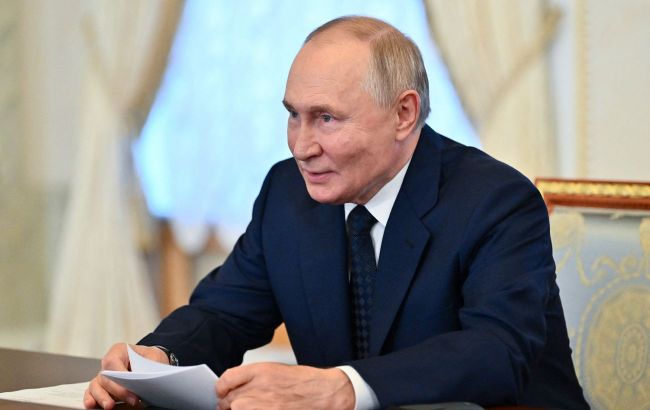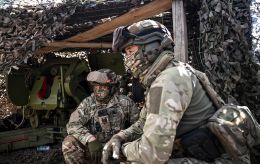'Maybe it's worth it': Putin claims frozen Russian assets could benefit global economy
 Russian President Vladimir Putin (Getty Images)
Russian President Vladimir Putin (Getty Images)
Russian President Vladimir Putin has found an unexpected "plus" in the freezing of Russian assets in the West. He even described it as a potential benefit for the global economy, according to Russian sources.
Putin stated that the freezing of Russian assets in the West would accelerate the regionalization of payment systems and noted that this could even be beneficial for the global economy.
"They keep saying they're going to steal our money. But as soon as that happens, the shift toward regionalized payment systems will accelerate and, without a doubt, become irreversible. And that, overall, is good for the global economy. Maybe it's even worth paying the price for," the president said.
Putin also complained, "Theft is the secret appropriation of someone else's property — this will be open appropriation, in other words, robbery."
Regionalization of payment systems
Regionalization of payment systems refers to the process in which countries or blocs of states develop their own financial infrastructure to reduce dependence on global financial systems such as SWIFT, Visa, Mastercard, or the US dollar.
By framing the asset freeze as a 'benefit,' Russian President Vladimir Putin is attempting to distort reality and portray the loss of hundreds of billions as a strategic gain.
He aims to undermine trust in Western financial systems, present them as "unsafe" for other countries, and promote the idea of a multipolar world without Western financial dominance.
In this way, the Kremlin seeks to create the illusion that Western sanctions actually play into Russia's hands — pushing the world toward a "new order" in which Russia's banking system and the ruble are not isolated, but independent.
Notably, Russia already has its own national payment system, Mir, which provides transaction services and issues bank cards.
However, since the start of the full-scale invasion, several countries have stopped accepting or servicing Mir cards.
Frozen Russian assets
The total amount of frozen Russian assets held in the Euroclear depository stands at €183 billion.
Earlier this month, it was reported that €18 billion in proceeds from these assets are expected to be used up by the end of the year.

